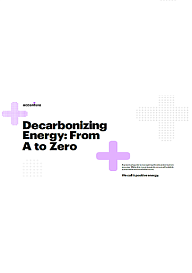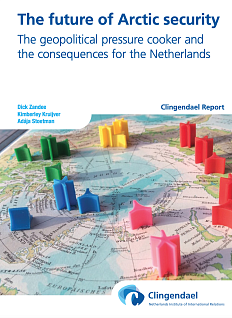Accenture experts conducted a large-scale study of the prospects for achieving the goals set in the Paris Climate Agreement, highlighting the role of the energy sector in achieving them.
Analysts of the Roscongress Foundation have identified the main theses of this study, accompanying each of them with a relevant piece of video broadcasts of panel discussions held as part of the business programs of key events held by the Foundation.
Transforming a fossil fuel-based energy system into a sustainable and decarbonized system is one of the main challenges for humanity.
The 2015 Paris Agreement, which set the goal of keeping the average temperature rise on Earth below 2°C (3.6F) from pre-industrial levels by 2050, is a key element of the international agenda today. Climate risk is regarded as one of the most critical in terms of the long-term existence of our civilization. To achieve this goal, more than 800 companies have launched ambitious programs to reduce greenhouse gas emissions, primarily carbon dioxide (CO2), into the atmosphere. The goal is to achieve zero emissions by 2050.
Achieving zero greenhouse gas emissions by 2050 seems unlikely to be realistic, but an 80% reduction is quite possible.
From the point of view of decarbonization, the key industry in which efforts should be concentrated is oil and gas. An analysis by Accenture in 2020 found that global energy-related CO2 emissions were 40 gigatons. Almost two-thirds of this volume comes from the oil and gas sector — emissions associated with extraction, treatment, transportation and processing, or, more importantly, at the point of consumption, when hydrocarbons are used for other purposes. It is imperative for oil and gas companies to limit not only 20% of emissions associated with their direct activities, but also those 80% that are outside their zone of influence.
Achieving complete decarbonization of the energy sector will require some decisive action, as well as bold steps in the sectors of the economy that today depend on hydrocarbons.
Conditions for achieving 80% emission reductions by 2050:
1. Actions of oil and gas companies today:
a. Steps to improve the sustainability of core businesses minimize emissions and enhance the efficiency of ongoing operations.
b. Action to accelerate transformation aims to replace existing energy and demand sources with greener alternatives.
c. Boundary expansion actions aim at introducing and scaling new energy sources, processes and technologies.
2. The ability of oil and gas companies to influence the situation in the sectors related to hydrocarbon combustion. Accenture’s analysis shows that up to 25% of potential emission reductions by 2050 depend on the collaboration of energy suppliers and consumers. Four sectors of the economy will account for the lion’s share of the projected growth in emissions — electricity, transport, heavy industry and construction. These are the industries that oil and gas companies should focus on and try to influence. And this is not just about investment — it is necessary to innovate and work closely with them to make the transition to a low- or zero-emission future a reality.
3. Strategic positions that oil and gas companies want to take in the future. Oil and gas companies have three behaviors that they can follow during and after the decarbonization process. The first is a «decarbonization specialist» who maintains and enhances the value generated by the main oil and gas value chain. The second is an «energy giant» that over time builds up or augments its existing oil and gas assets with a clean energy business. The third is a «low-carbon solution leader» that will abandon its role in the oil and gas industry and reorient itself to leadership in one or more areas of clean electricity.
We also invite you to familiarize yourself with other materials posted in special sections of the Roscongress Information and Analytical System Climate Change, Power Generation and Oil and Gas, devoted to possible ways to stabilize the economy.






